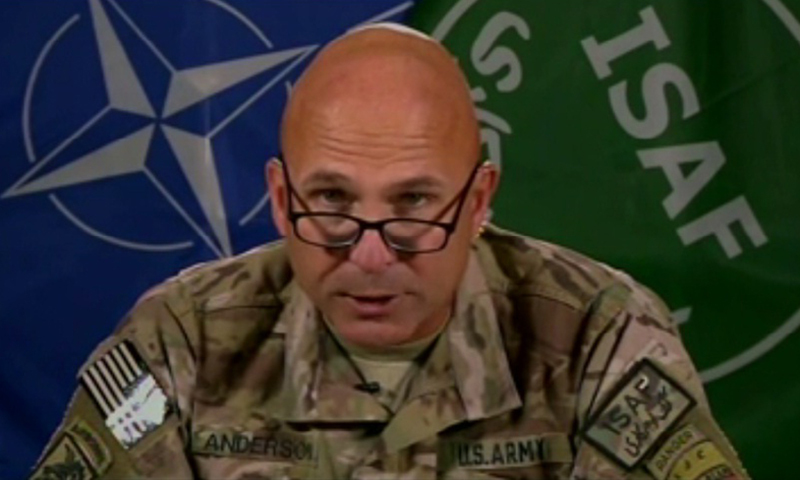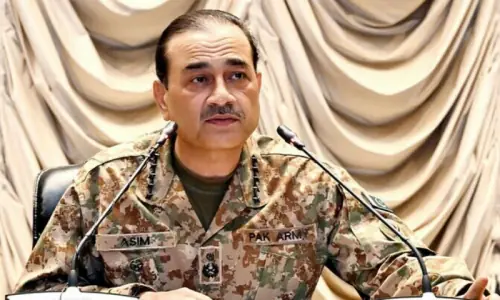WASHINGTON: A top American general in command of international forces in Afghanistan said Pakistan's ongoing military operation in North Waziristan has helped disrupt the Haqqani network's ability to launch attacks on Afghan territory.
Lt. Gen. Joseph Anderson, a senior commander for US and Nato forces in Afghanistan, noted in a Pentagon-hosted video briefing from Afghanistan on Wednesday that the Haqqani network is now "fractured" like the Taliban.
“They are fractured. They are fractured like the Taliban is. That's based pretty much on the Pakistan [operations] in North Waziristan this entire summer-fall,” he said, acknowledging the effectiveness of Pakistan's continuing military offensive, Zarb-i-Azb.
“That has very much disrupted their efforts [in Afghanistan] and has caused them to be less effective in terms of their ability to pull off an attack in Kabul,” Anderson added.
The US commander's remarks came in response to a question, when he was asked about the level of Haqqani network threat in the wake of Pakistani operation in the previously militant stronghold tribal area of North Waziristan.
Since its launch in June this year, the Pakistani offensive has eliminated a large number of terrorists. In the briefing, the US general also referred to success of the Afghan national security forces against the Haqqani network, which he described as one of the many threat streams affecting security in Afghanistan.
The network, he said, is focused more on the high profile attack like the large vehicle-borne explosives attacks.
“Well, the examples are been what the ANSF in fact has been in terms of their security operations. So they've been able to secure the major road networks. They've worked the border crossings and they've kind of worked a layered ebb and flow based on all the different events that have transpired since the summertime.”
Anderson revealed that 4,634 members of Afghanistan's police and army have been killed in action this year. That is already an increase from the total for 2013, when 4,350 members lost their lives.
“This [level of casualties] is not sustainable,” he said.
A Pentagon report submitted to the US Congress titled 'Progress Toward Security and Stability in Afghanistan' had earlier accused Pakistan of using militants who launch attacks on India and Afghanistan from sanctuaries in the Federally Administered Tribal Areas (Fata) and Balochistan.
“Taliban attacks in Afghanistan launched from sanctuaries in Pakistan remain a serious problem. These sanctuaries exist primarily in the Federally Administered Tribal Areas (FATA) and Baluchistan,” the report said.
The report which runs more than 100 pages also said Pakistan is involved in a proxy war waged against India to offset the latter's military superiority. It also acknowledged gains made by the military in the FATA operations.
“Afghan- and Indian-focused militants continue to operate from Pakistan territory to the detriment of Afghan and regional stability. Pakistan uses these proxy forces to hedge against the loss of influence in Afghanistan and to counter India’s superior military," it said.
“These relationships run counter to Pakistan’s public commitment to support Afghan-led reconciliation. Such groups continue to act as the primary irritant in Afghan-Pakistan bilateral relations,” it added.
Referring to a recent attack on the Indian consulate in Afghanistan's Herat province which took place three days before India's new Prime Minister Narendra Modi took oath, the report held militant group Lashkar-e-Taiba (LeT) responsible for the attack.
Then Afghan President Hamid Karzai had also said that he was informed by western intelligence agencies that the attack was carried out by the LeT.
The accusation was rejected by the LeT.

































